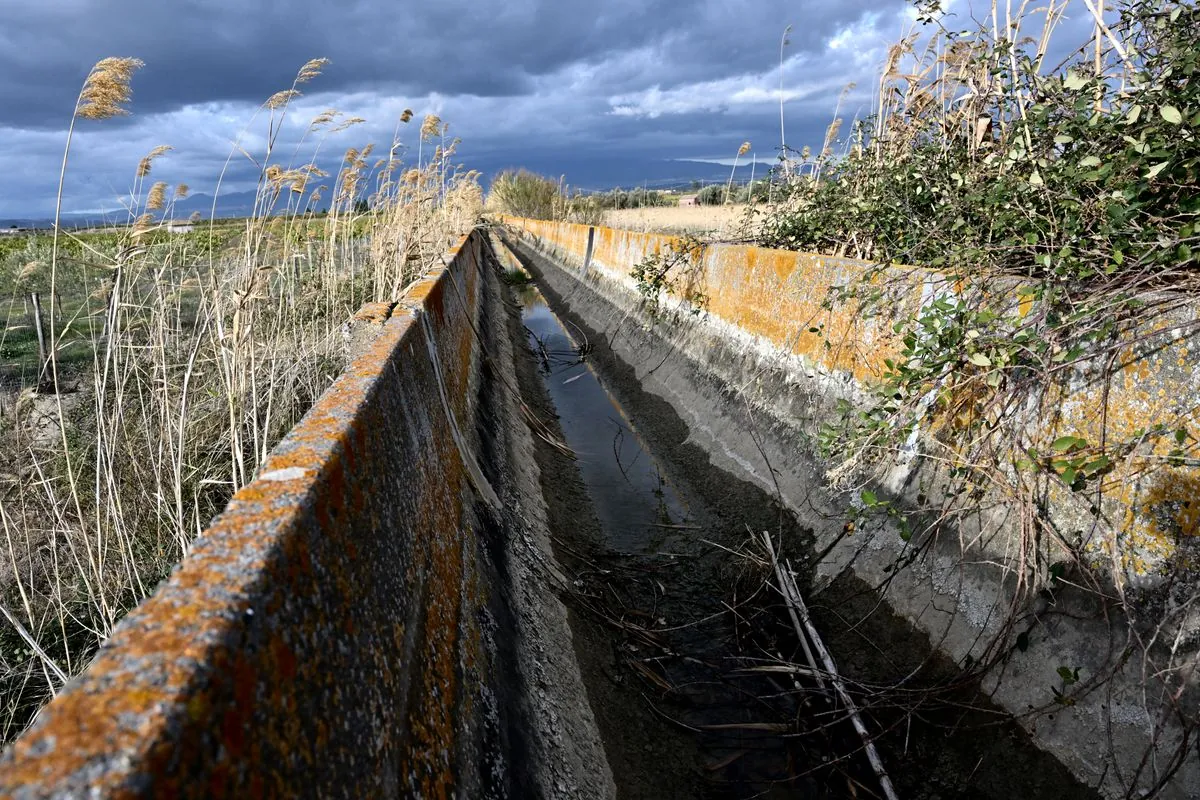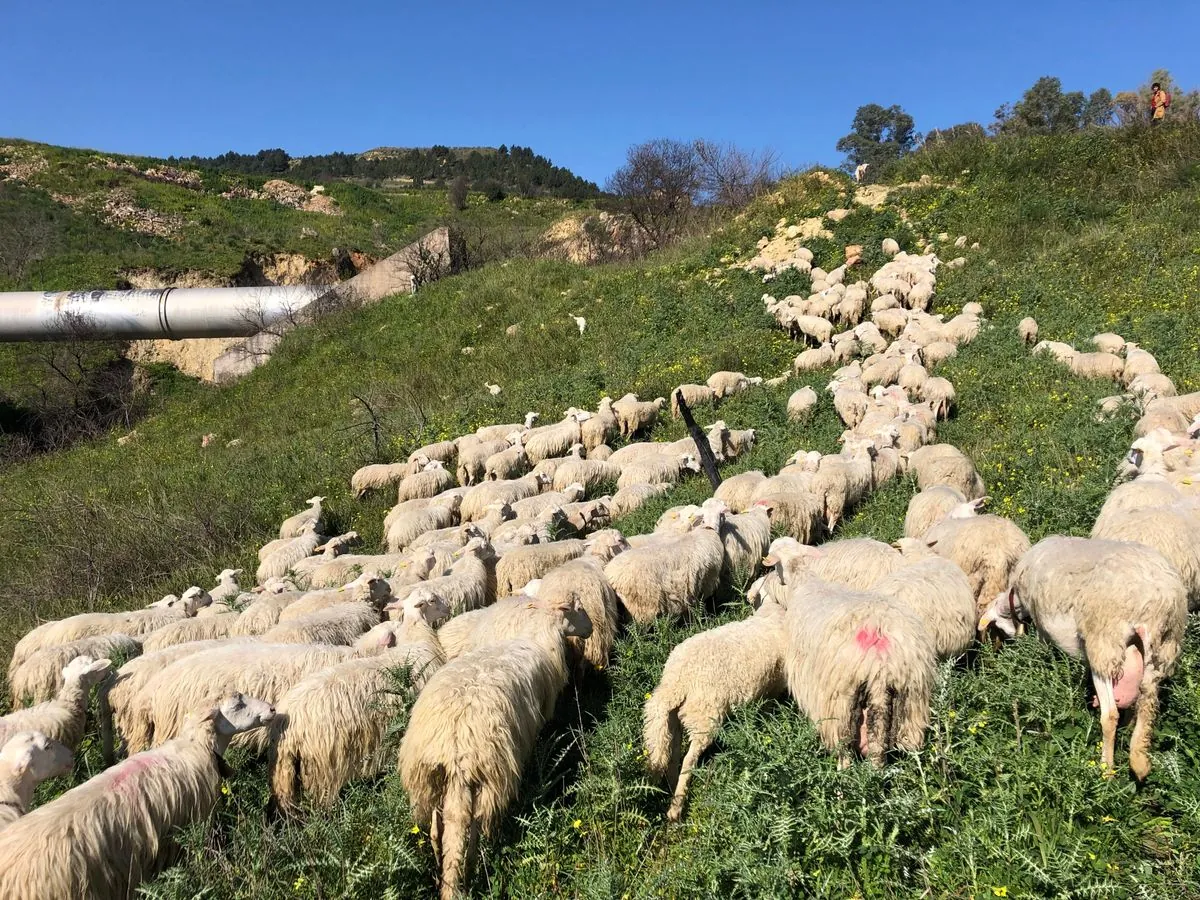Sicily's Drought Crisis Threatens Rare Goat Breed and Local Agriculture
Severe drought in Sicily impacts goat breeders and agriculture. Water shortages and rising costs threaten local Girgentana goats. Government assistance struggles to meet farmers' needs amid climate change effects.

In the sun-scorched hills of San Cataldo, Sicily, local goat breeder Luca Cammarata faces a dire situation as he struggles to find sustenance for his herd. The ongoing drought has left the grazing lands barren, threatening the survival of the rare Girgentana goat breed.
Sicily, the largest island in the Mediterranean Sea with a rich 10,000-year history, is grappling with a severe water shortage. This crisis is particularly acute in central areas like San Cataldo, located in the province of Caltanissetta. Reservoirs are depleted or operating at critically low levels, forcing authorities to implement water rationing measures.
Cammarata expresses his concern: "If every last drop of water falling from the sky is not collected, Sicily will become a desert." This statement reflects the growing threat of desertification that the island has been facing in recent decades.

The situation has become so critical that breeders like Cammarata fear they may have to send their Girgentana goats to slaughter. This rare breed, native to Sicily and bred for centuries for dairy products including ricotta cheese, now faces the risk of extinction.
The cost of water has doubled for farmers, adding to their financial burden. To provide some relief, the Carabinieri Forestry Department delivers water to farms every 15 days. However, Alessandro Panzarella, a member of the Carabinieri Command for Forest, Environment and Agri-Food, notes that with only one tanker truck serving the entire province, it's impossible to meet all farmers' needs.
"We visit many farms throughout the province of Caltanissetta and the situation is disastrous."
The drought's impact extends beyond goat breeding. Sicily, which produces about 7% of Italy's wine and is known for its unique cuisine, has seen a significant decline in agricultural production. Wine, fruit, and olive oil outputs have all been affected by extreme weather events linked to climate change.
Sicily's economy, heavily reliant on agriculture and tourism, is feeling the strain of these environmental challenges. The island, home to the highest number of UNESCO World Heritage Sites in Italy, is experiencing the harsh realities of climate change firsthand.
In 2021, Sicily set a European heat record of 48.8°C (119°F), highlighting the intensity of the climate crisis. As the island continues to face hot, dry summers characteristic of its Mediterranean climate, the need for sustainable water management and climate adaptation strategies becomes increasingly urgent.
The plight of the Girgentana goats and their breeders serves as a stark reminder of the interconnectedness between climate, agriculture, and cultural heritage. As Sicily battles this unprecedented drought, the preservation of its unique breeds, agricultural traditions, and natural resources hangs in the balance.


































